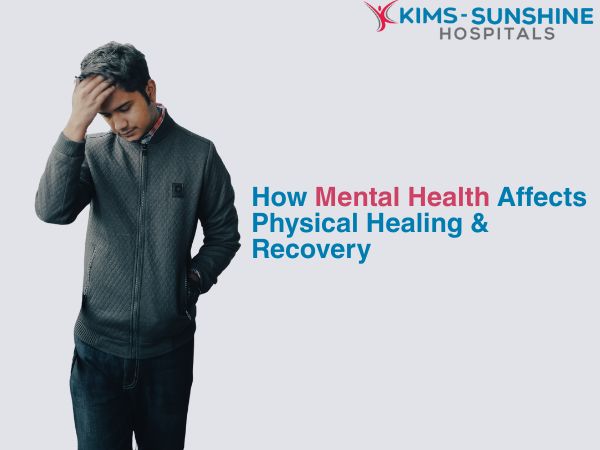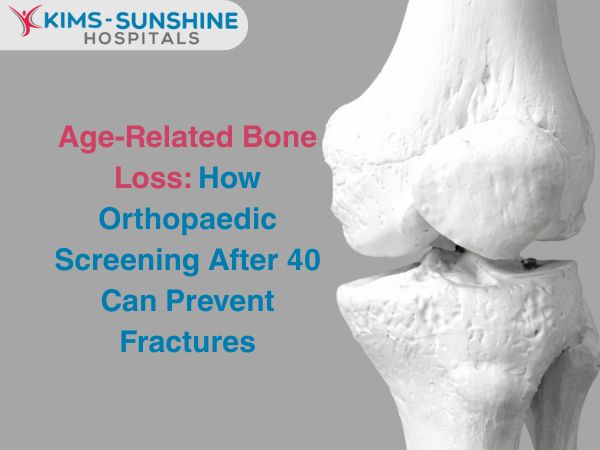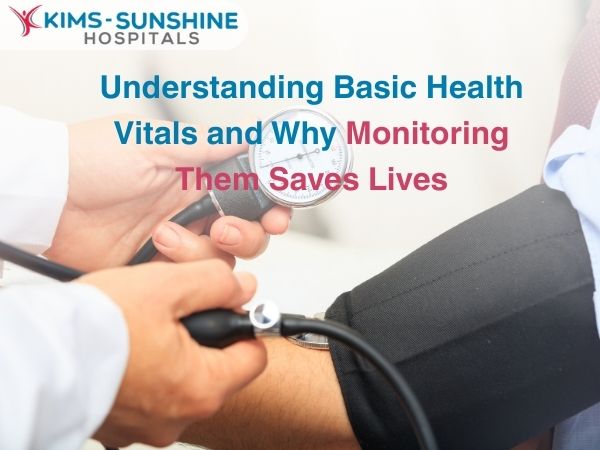
How Mental Health Affects Physical Healing & Recovery
 We have often heard the popular adage-”A sound mind in a sound body.” Having a healthy mind and positive mindset goes a long way in quick healing from illness and post-operative recovery. The relationship between physical health and mental well-being is reciprocal in nature. Most often, illnesses, injuries, and accidents can lead to post-traumatic stress symptoms such as anxiety, depression, and even nightmares which can negatively impact your recovery. This blog delves into how mental health affects physical recovery.
We have often heard the popular adage-”A sound mind in a sound body.” Having a healthy mind and positive mindset goes a long way in quick healing from illness and post-operative recovery. The relationship between physical health and mental well-being is reciprocal in nature. Most often, illnesses, injuries, and accidents can lead to post-traumatic stress symptoms such as anxiety, depression, and even nightmares which can negatively impact your recovery. This blog delves into how mental health affects physical recovery.
Connection between brain and body healing
There is a deep connection between the human mind and body, where both play a crucial role in healing and recovery. In a relaxed state, the brain releases certain neurotransmitters and neuropeptides such as endorphins which can reduce pain and affect healing or recovery. Whereas, chronic stress can lead to the release of various stress hormones such as cortisol which has a negative impact on bodily functions. Thus, the role of mental health in chronic illness recovery cannot be negated.
Does stress slow down healing after surgery?
There is a fine balance that needs to be maintained when it comes to your emotional health and physical recovery time. Your mental state of mind can determine how soon you are able to recover from a physical setback. Dealing with emotional effects post a physical setback can be challenging. Instead of wondering “why me?,” it is time to take stock of your mental health, otherwise you can easily slip into the abyss called depression.
Impact of depression on physical healing
If you are experiencing some of the psychological factors in post-op recovery such as feelings of anxiety, depression, or post-traumatic stress disorder (PTSD), following a surgery or injury, it is very important that you reach out and seek professional help from experts. In general, depression can greatly impact physical healing by affecting the immune system, wound healing, and recovery from an illness or injury. Major depressive episodes can lead to chronic pain and complicate the treatment, leading to worsening of your physical condition. Similarly, anxiety too can impact your recovery time from an injury or surgery. Anxiety can impede recovery, intensify pain, and interfere with functional improvement, potentially leading to a prolonged and less favorable outcome.
Does therapy help with physical healing?
Having understood the connection between brain and body healing, it is important to find ways for overall physical and mental well-being. In this regard, therapy, particularly physical therapy, is known to bring about holistic healing. By using physical therapy as a healing method, you can achieve a state of improved mobility, reduced pain, and faster tissue recovery. Having a positive mindset also boosts the immune system, thereby facilitating post-op recovery from an illness or injury.
Conclusion
So, whether it is your physical health or mental well-being, utmost care should be taken to see that both do not get negatively impacted after the trauma or injury happens. By seeking professional help at the right time, depression, anxiety, and stress can be controlled to a great extent.






